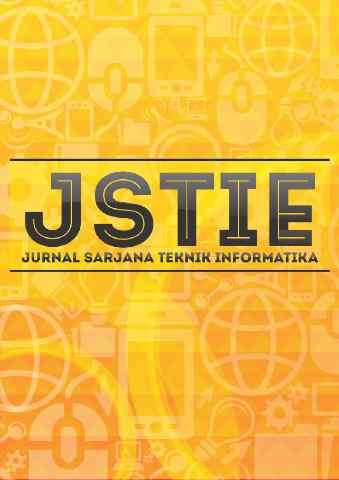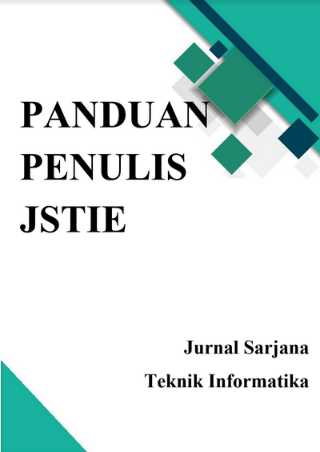Soft Computing Hybrid System for Student Performance Evaluation
DOI:
https://doi.org/10.12928/jstie.v11i2.26134Keywords:
Hybrid, Soft Computing, Clustering Algorithm, Machine learning, Optimization AlgorithmAbstract
Education Institutions have deployed technology accelerated learning systems and innovations for effective learning outcomes. Evaluating student’s performance in these systems must align with the cognitive, affective, and psychomotor learning domains. In this research, a Hybrid soft computing system comprising of the Clustering Algorithm, Machine learning technique, and Optimization algorithm were hybridized and implemented to evaluate student academic performance using academic, social, and economic data of students. The quality of Categorizing information first utilizing Fuzzy C-Means and preparing ANFIS utilizing Particle Swarm Optimization was introduced which formed the Hybrid soft computing system (FCM-PSOANFIS). It demonstrated significantly, a robust predictive capability compared to other hybrid machine learning algorithms such as ANFIS and GANFIS. The results of the proposed Hybrid Soft Computing model (FCM-PSOANFIS) show a higher convergence when compare with ANFIS and GANFIS. The proposed model works better with bigger datasets than with smaller or fewer datasets, and it delivers higher predictive findings under settings that depict student learning capacities while assessing student academic achievement.
References
D. Mertens, Research and Evaluation in Education and Psychology: Integrating Diversity With Quantitative, Qualitative, and Mixed Methods, SAGE Publications. https://books.google.com.ng/books?id=6RR7DwAAQBAJ, 9781544333748, 2019.
O. L. B. B. &. A. R. M. Liu, "Measuring Learning Outcomes in Higher Education: Motivation Matters.," Educational Researcher 41(9), https://doi.org/10.3102/0013189X12459679, p. 352–362., 2012.
E. Thandevaraj, N. Gani and M. Nasir, "A Review of Psychological Impact on Students Online Learning during Covid-19 in Malaysia," Creative Education, 12, 1296-1306. doi: 10.4236/ce.2021.126097, 2021.
I. &. R. J. L. Boutakidis, "Academic motivation and engagement across three generations of Latino/a junior high school students," Journal of Latinos and Education. doi: 10.1080/15348431.2019.1674147 , 2019.
J. Udeni, S. Ajantha and D. Anuja, "Student's Performance Evaluation in Online Education System vs Traditional Education system.," International COnfrerence on Remote Engineering and Virtuak Instrumentation. Bangkok, Thailand: IEEE., pp. 127-131, 2015.
J. Tang, G. Liu and Q. Pan, "A Review on Representative Swarm Intelligence Algorithms for Solving Optimization Problems: Applications and Trends,"," IEEE/CAA Journal of Automatica Sinica vol. 8, no. 10, pp. 1627-1643, October 2021, doi: 10.1109/JAS.2021.1004129., pp. 1627-1643, 2021.
C. Lin, "Optimization of Bearing Locations for Maximizing First Mode Natural Frequency of Motorized Spindle-Bearing Systems Using a Genetic Algorithm.," Applied Mathematics, 5, doi: 10.4236/am.2014.514208., pp. 2137-2152, 2014.
M. Al-Faiz and S. Sadeq, "Particle Swarm Optimization Based Fuzzy-Neural Like PID Controller for TCP/AQM Router," Intelligent Control and Automation, Vol. 3 No. 1, doi: 10.4236/ica.2012.31009., pp. 71-77, 2012.
L. Zajmi, F. Y. H. Ahmed and A. A. Jaharadak, "Concepts, Methods, and Performances of Particle Swarm Optimization, Backpropagation, and Neural Networks," Applied Computational Intelligence and Soft Computing Hindawi https://doi.org/10.1155/2018/9547212, 2018.
M. S. Amirah, H. Wahidah and A. R. Nur’aini, "A Review on Predicting Student's Performance Using Data Mining Techniques.," Procedia Computer Science, Volume 72, https://doi.org/10.1016/j.procs.2015.12.157. (https://www.sciencedirect.com/science/article/pii/S1877050915036182), pp. 414-422, 2015.
I. E. Livieris, K. Drakopoulou and P. Pintelas, "Predicting students’ performance using artificial neural networks," 8th PanHellenic Conference with International Participation Information and Communication Technologies, pp. 321-328, 2012.
G. Rao and K. Kumar, "Students Performance Prediction in Online Courses Using Machine Learning Algorithms," United International Journal for Research & Technology (UIJRT), 2(11), pp. 74-79, 2021.
V. Oladokun, A. Adebanjo and O. Charles-Owaba, "Predicting Students Academic Performance using Artificial Neural Network: A Case Study of an Engineering Course," The Pacific Journal of Science and Technology. Volume 9. Number 1. http://www.akamaiuniversityhttps://www.researchgate.net/publication/228526441_Predicting_Students_Academic_Performance_using_Artificial_Neural_Network_A_Case_Study_of_an_Engineering_Course, 2008.
B. Yao, H. Hagras, M. J. Alhaddad and D. M. Al-Ghazzawi, "A fuzzy logic-based system for the automation of human behavior recognition using machine vision in intelligent environments," Soft Computing, 19, https://doi.org/10.1007/s00500-014-1270-4, pp. 499-506, 2015.
S. H. J. Petrudi, M. Pirouz and B. Pirouz, "Application of fuzzy logic for performance evaluation of academic students," in 13th Iranian Conference on Fuzzy Systems (IFSC), doi: 10.1109/IFSC.2013.6675615., 2013.
C. Cooper, "Students At Risk: The Impacts of Self-Efficacy and Risk Factors on Academic Achievement.," 2015.
H. Petar, "Prediction of e-Learning Efficiency by Neural Networks," Cybernetics and Information Technologies 12(2), DOI: 10.2478/cait-2012-0015, 2012.
S. T. Karamouzis and A. Vrettos, "An Artificial Neural Network for Predicting Student Graduation Outcomes," Proceedings of the World Congress on Engineering and Computer Science, October 22 - 24, 2008, San Francisco, USA ISBN: 978-988-98671-0-2 https://www.academia.edu/67409477/An_Artificial, 2008.
A. U. a. H. H. Khasanah, "A Comparative Study to Predict Student’s Performance Using Educational Data Mining Techniques," IOP Conference Series: Materials Science and Engineering, 215, 2017.
S. &. F. N. Huang, "Work in progress — Prediction of students' academic performance in an introductory engineering course.," Frontiers in Education Conference (FIE), S4D-1-S4D-3., 2011.
P. Mrinal and S. Taruna, "Towards the integration of multiple classifier pertaining to the Student’s performance prediction.," Perspectives in Science, 8, Available online at www.sciencedirect.com ScienceDirect, p. 364—366, 2016.
A. Al-Hmouz, J. Shen, R. Al-Hmouz and J. Yan, "Modeling and Simulation of An Adaptive Neuro-Fuzzy Inference System (ANFIS) for mobile learning.," IEEE Transactins on Learning Technologies, 5(3)., pp. 226-237, 2012.
A. Kharola, "A hybid ANFIS techniques for Effective performance Evaluation.," PM World Journal, 4(9),, pp. 21-39., 2015.
R. M. A. A. S. A. &. H. N. G. Asif, "Analyzing undergraduate students' performance using educational data mining," journal of Comput. Educ. volume (113), pp. 177-194 , 2017.
Downloads
Published
Issue
Section
License
License and Copyright Agreement
In submitting the manuscript to the journal, the authors certify that:
- They are authorized by their co-authors to enter into these arrangements.
- The work described has not been formally published before, except in the form of an abstract or as part of a published lecture, review, thesis, or overlay journal. Please also carefully read Journal Posting Your Article Policy.
- The work is not under consideration for publication elsewhere.
- The work has been approved by all the author(s) and by the responsible authorities – tacitly or explicitly – of the institutes where the work has been carried out.
- They secure the right to reproduce any material that has already been published or copyrighted elsewhere.
- They agree to the following license and copyright agreement.
Copyright
Authors who publish with Jurnal Sarjana Teknik Informatika agree to the following terms:
- Authors retain copyright and grant the journal right of first publication with the work simultaneously licensed under a Creative Commons Attribution License (CC BY-SA 4.0) that allows others to share the work with an acknowledgement of the work's authorship and initial publication in this journal.
- Authors are able to enter into separate, additional contractual arrangements for the non-exclusive distribution of the journal's published version of the work (e.g., post it to an institutional repository or publish it in a book), with an acknowledgement of its initial publication in this journal.
- Authors are permitted and encouraged to post their work online (e.g., in institutional repositories or on their website) prior to and during the submission process, as it can lead to productive exchanges, as well as earlier and greater citation of published work.








